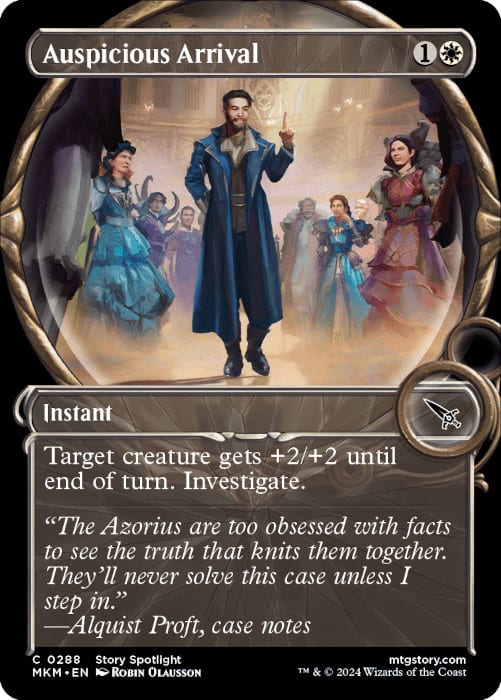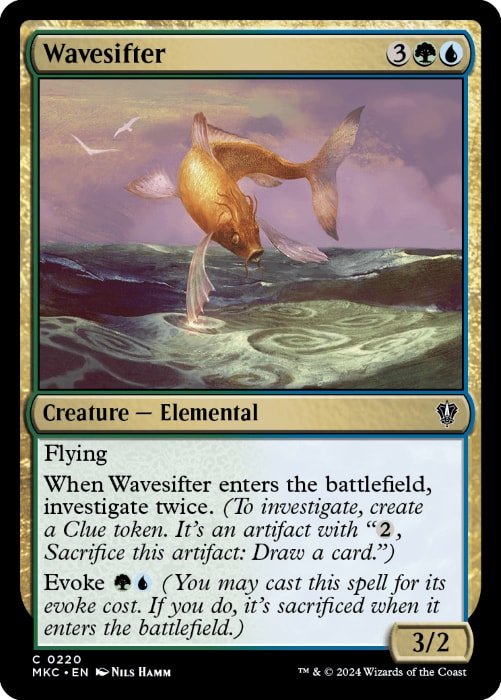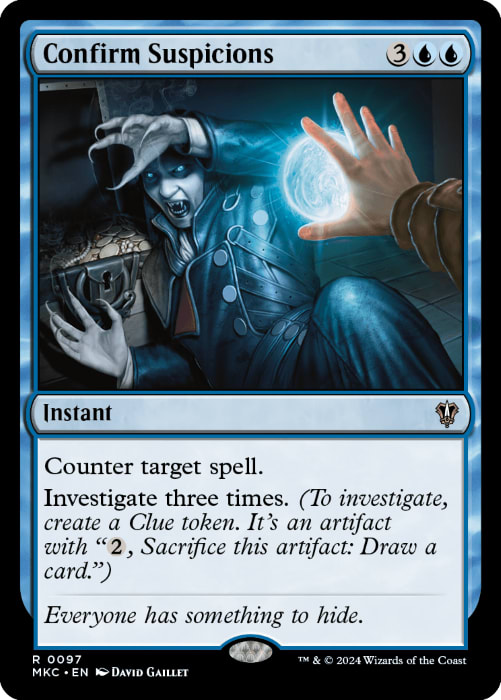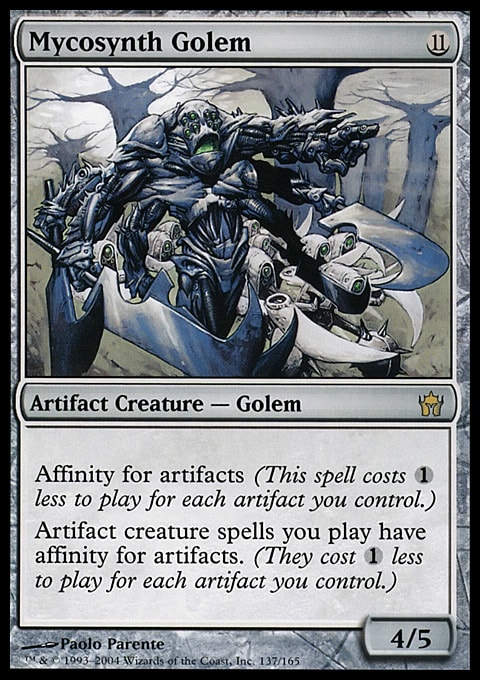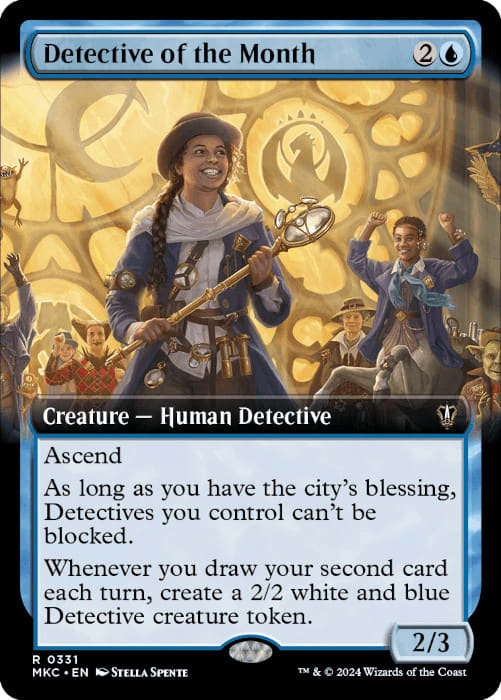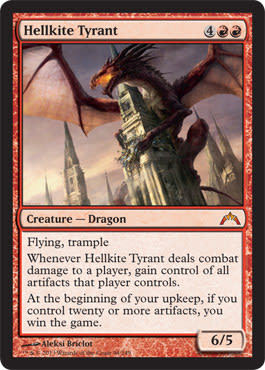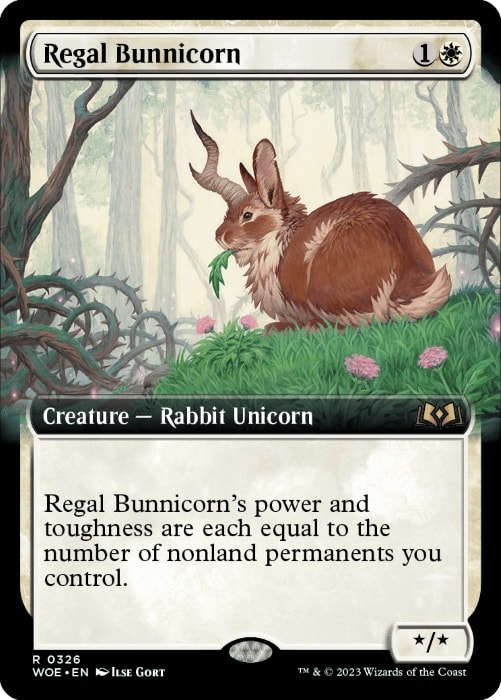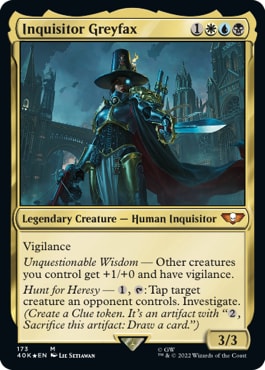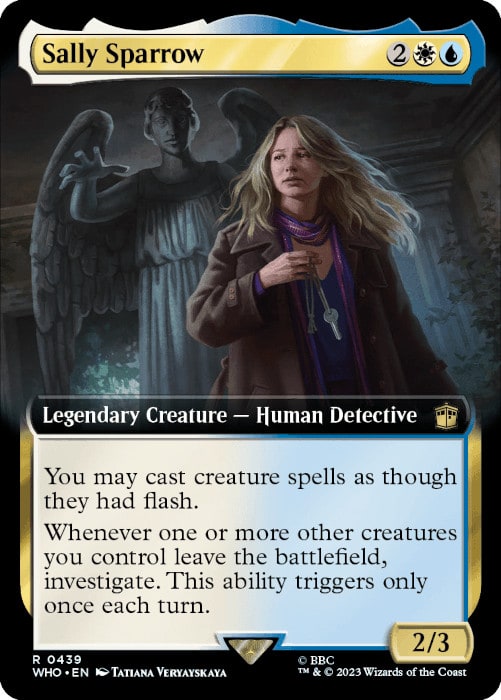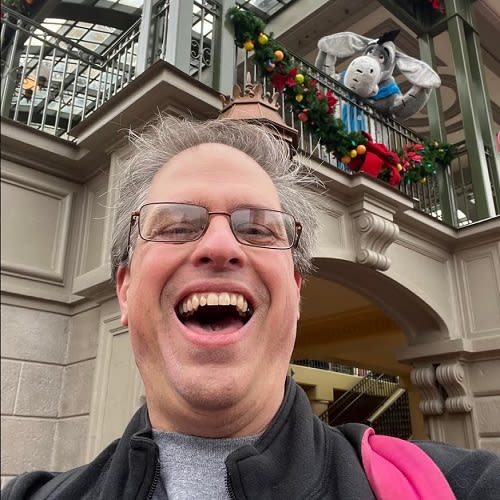How does Investigate work in Murders at Karlov Manor?
Step one: Buy a fedora. Everyone on Ravnica is rocking fedoras these days.
Step two: Put down that sword. Pick up a magnifying glass. There's sleuthing to do be done!
As it stands, there are about 60 cards that possess Investigate, but with the release of Murders at Karlov Manor and its corresponding Commander decks, the number's about to dramatically increase. Primarily centered in White, Blue, and Green, Investigate provides yet another avenue for that most precious of all resources in Magic: The Gathering: the beloved card advantage. Sure, compared to standard card draw, Investigate is slower. We need a mana investment to crack those Clues. But as you'll see, even the simple generation of artifact tokens opens a world of synergistic possibilities.
So, without further ado, let's crack the case on the Investigate mechanic!
Step One: The Function
Investigate causes you to create a Clue (Token), an artifact with the activated ability "2, Sacrifice this artifact: Draw a card". Each instance of Investigate creates a single Clue, so multiple occurrences will be separately noted. Auspicious Arrival Investigates once, so you'll receive one Clue token. Cards like Wavesifter and Confirm Suspicions illustrate multiple instances of the ability, with each producing its own Clue. Clue tokens are permanents that stay on the battlefield until you either cash them in for value, most often for inherent card draw, or they're removed by another effect (Ex. Shatterstorm, Farewell).
You can activate Clues at Instant speed, making them useful for the end of an opponent's turn. This allows you to hold up mana for interaction if an opponent plays something nasty on their turn. If they don't, you'll still be able to use that spare mana for your Clue token. Let's say you have three mana open once your opponent begins their turn. You anticipate their Thraximundar is about to make its grisly debut from the Command Zone, so you have three lands untapped for a Chaos Warp in your hand. If that zombie looks your way, a-warping' it'll go. However, your opponent instead chooses not to play their commander and passes the turn back to you. Normally, those three lands would've gone unused, but with a Clue, that open mana can be used to sacrifice the token and draw a card once your opponent goes to their end step. You've kept yourself safe from the possibility of a threat while simultaneously making the most of your open mana.
Sacrificing your Clue for a card is an activated ability, so opponents will have the opportunity to respond. I doubt anyone would be so salty as to Stifle your Clue's activated ability, but said ability does go onto the stack, so don't be surprised if Instant-speed shenanigans ensue before you draw that card.
Step Two: The Synergies
No one's complaining about extra card draw, but there's plenty of other uses for those Clue tokens. As artifacts, they'll count towards Affinity for Artifacts (Chiss-Goria, Forge Tyrant, Mycosynth Golem, Emry, Lurker of the Loch) and Improvise (Universal Surveillance, Organic Extinction, Inspiring Statuary), making your spells cheaper to cast. An ever-expanding collection of artifacts can power-up your team (Master of Etherium, All That Glitters, Nettlecyst, Armed with Proof), enable the City's Blessing (Arch of Orazca, Detective of the Month, Vona's Hunger, Wayward Swordtooth), or become an army all on their own (Rise and Shine, Cyberdrive Awakener, Tangletrove Kelp, Displaced Dinosaurs, The Antiquities War). Once you've amassed enough evidence, you might just win the game on the spot (Hellkite Tyrant, Mechanized Production, Mirrodin Besieged).
If you do opt for the 'draw a card' route, you've plenty of additional synergies to capitalize on. Drawing extra cards powers up On the Trail, Irencrag Pyromancer, Chasm Skulker, Psychosis Crawler, and Archmage Ascension, to name a few. Morska, Undersea Sleuth, of the new Deep Clue Sea deck, provides a thematic Commander option, but plenty of other Legendary creatures also benefit from added card draw (Alandra, Sky Dreamer, Jolrael, Mwonvuli Recluse, Minn, Wily Illusionist).
Artifacts also make fantastic fuel for sacrifice-synergies, with Commanders like Breya, Etherium Shaper, Oswald Fiddlebender, and the new Sophia, Dogged Detective letting you cash in Clues for more than just card draw. Within the 99', Clues can be recycled into mana (Krark-Clan Ironworks), life-drain (Mirkwood Bats, Disciple of the Vault, Agent of the Iron Throne), extra turns (Time Sieve), tutoring (Kuldotha Forgemaster, Proliferate (Throne of Geth), and recursion (Ingenuity Engine, Trash for Treasure), among countless other uses.
Investigate has plenty of Standard potential as well. A humble turn one Novice Inspector provides two permanents for a turn two Regal Bunnicorn to grow off. Follow that up with Adeline, Resplendent Cathar, and you're attacking for 7 damage on turn three.
Step 3: More Commanders!
The world of Magic: The Gathering has plenty of Investigate/Clue-themed Legendary creatures to recruit as Commanders (Lonis, Cryptozoologist, Eloise, Nephalia Sleuth, Tivit, Seller of Secrets, etc.), and once Murders at Karlov Manor releases, we'll have a whole lot more (Ezrim, Agency Chief, Alquist Proft, Master Sleuth, Senator Peacock). But oddly, in the course of my research for this article, I found most investigative commanders hail from outside the multiverse. Within Universes Beyond: Doctor Who, a plethora of Legendaries like Sally Sparrow, Martha Jones, Duggan, Private Detective, The Fugitive Doctor, Sarah Jane Smith, Jenny Flint//Madame Vastra, and Rory Williams // Amy Pond (among many others) all take up the detective hat. Universes Beyond: Warhammer 40k has Inquisitor Greyfax and Inquisitor Eisenhorn directly investigating, though Marneus Calgar is just as happy to see Clue tokens enter the battlefield under your control. Even the Innistrad-reskins of Stranger Things characters brought us Clue-centric cards like Wernog, Rider's Chaplain, Sophina, Spearsage Deserter, and Elmar, Ulvenwald Informant.

Magnifying Glass by Dan Scott
Based on the evidence, I deduce that I'll be having nightmares tonight
I hope this overview of the Investigate mechanic was helpful, and that when Murders at Karlov Manor makes its debut, you'll be equipped with all the mystery-solving know-how to get to the bottom of things. Ravnica is a dangerous place, despite the bustling metropolitan charm. Keep your wits sharp and your resolve steely. It's a concrete jungle out there.
Thanks for reading, and may you never run out of clues!
-Matt-














